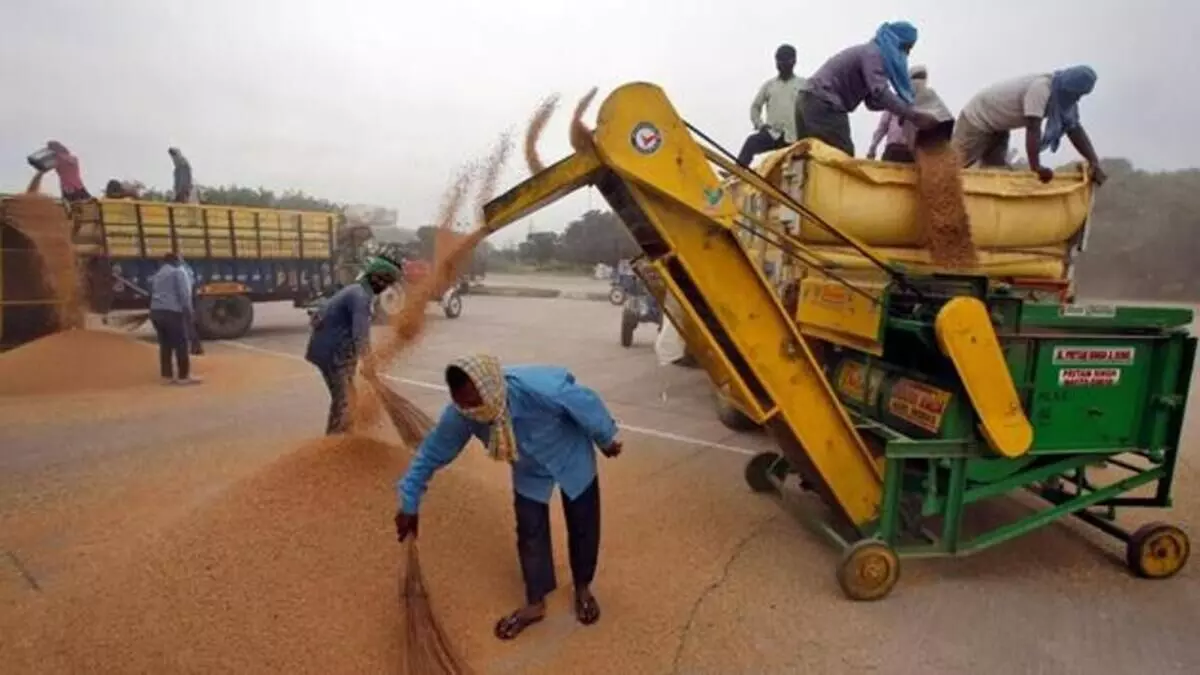Logical hand-holding?

It may remain a topic of debate forever whether the Indian government did enough during the pandemic to buttress its crisis-hit population. But one thing is certain — it managed to avoid a deep food crisis that might have engulfed the poorest section of society. This it did through Pradhan Mantri Garib Kalyan Anna Yojana (PMGKY) which ensured almost uninterrupted free food grain supply to the poorest 81 crore of the Indian population between April 2020 to December 2022. From January 1, 2023, the scheme will no longer be there. It suits the present circumstances as the pandemic is no more as intense than it was over the past two years. It won't be wrong to say that the scheme was circumstantial and has by and large served its purpose from the welfare perspective, and that it must go now. But rolling back a free food grain scheme must not have been an easy task for a country like India that has a layered socio-economic make-up. What the government has done is to make the heavily subsidised food grain, distributed under the National Food Security Act (NFSA), a free thing. While the PMGKY had to go at some instance, the institutionalisation of free rationing under NFSA is irreversibly damaging. It will be difficult for the government to roll it back. Though the cost forgone by the government on account of providing free food grains under NFSA — over the hitherto abysmal rates — may not be very significant, the direction in which subsidies are headed is problematic. In the wake of the expectations of food inflation remaining high, the government indeed needed to help the poor out, but free grains under NFSA might not be a good idea because the larger objective should be to move away from the subsidy regime. Social welfare is just one perspective through which food subsidisation can be looked at. For instance, food subsidisation may have a considerable impact on fiscal aspects of the economy as well. The fertiliser subsidy has already been on a high. The revenue buoyancy caused by the increase in institutionalised food subsidy may add up to the problem — leaving the government with little room to make tax cuts in the upcoming budget. Notably, nominal growth projections for the next fiscal have also come down, which may negatively impact tax collections. Under such a circumstance, the decision to distribute free food grains under NFSA seems incoherent. One may argue that the government will save more than one lakh crore by discontinuing the PMGKY, which is way higher than the sum forgone under revised NFSA. However, it should not be forgotten that the PMGKY has lived its life, and its extension till December was already considered overboard by many. In fact, the government's move might be more of political nature than being purely economic. By itself announcing free food distribution, the Centre has strapped state governments — particularly those ruled by opposition parties — from the chance of providing free grains by spending a marginal sum over the central subsidy. Apart from affecting fiscal prudence, the government's move will also affect the subsidy bill. India's already elevated subsidy bill may bloat further, dashing the hopes of lower subsidy bill in FY2024. All hopes now hinge on a possible moderation in fertiliser subsidy. Also, the situation is not helped by the continuation of the Ukraine-Russia war which may keep international oil prices strained. On the positive side, however, the discontinuation of PMGKY can help maintain buffer norms in the future. The scheme has been a burden on buffer stocks for the past couple of years. The situation was worsened by disruptions in food production on account of weather-related aberrations. As the food output is expected to remain low against a narrow surplus in buffer stock, the discontinuation of the programme may have come at the right time. To sum up, the discontinuation of the Pradhan Mantri Garib Kalyan Anna Yojana (PMGKY) is a welcome move but the distribution of free foodgrains under NFSA by and large defies logic.



